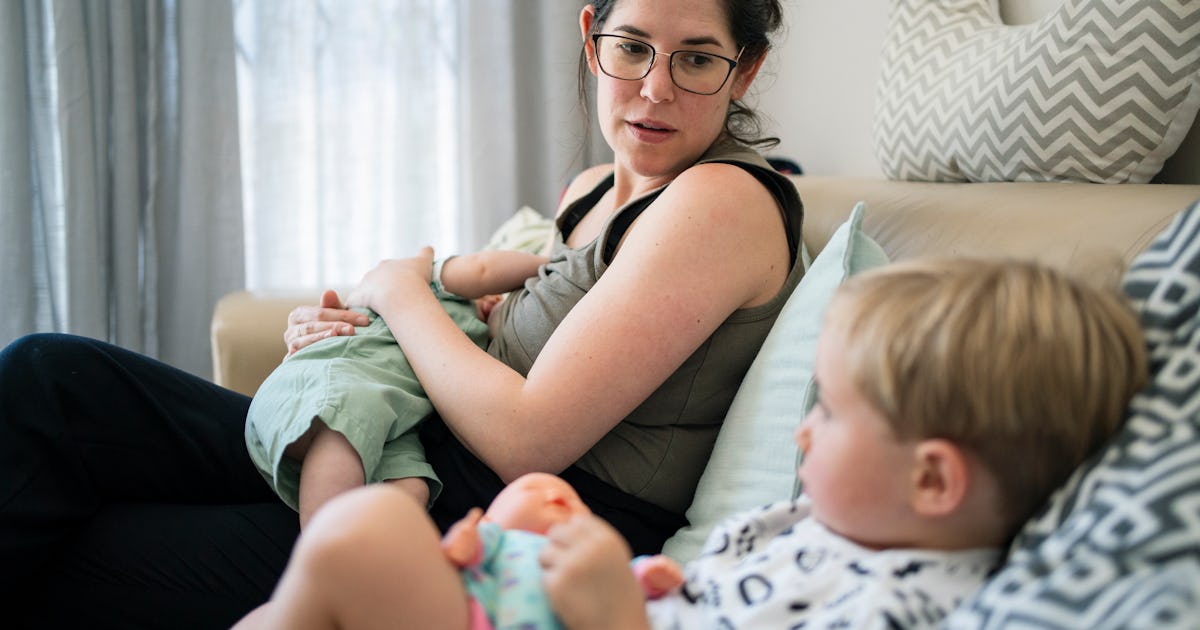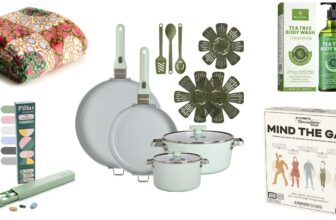
Having a baby fundamentally changes a person. Everything around you is suddenly different. Everything looks different, feels different. For a while, there’s a very specific, craggly line separating your life — the Before and the After. No matter how thrilled or anxious you were about becoming a mom, no matter how planned or unplanned your child was, you’re bound to feel like a new person. But do we really lose ourselves? Have we forgotten who we were before kids?
Those early days, months, even years are hard. It’s a lot of surviving and not thriving, but there comes a point in your motherhood journey where you realize you’re far enough in to have the hang of everything and maybe, just maybe, you can “rediscover” yourself. There are millions of stories and movies and shows and podcasts and Instagram accounts all about “finding yourself” once you’re out of the thick of motherhood — but, like, do moms really need one more thing to find?
It’s not that who you are underneath motherhood — your character, your beliefs, your dreams — has completely been eradicated by this new personality and being, but there has been a shift. “The feeling of ‘losing yourself’ after having a baby is not only real, it’s expected,” says Salina Grilli, LCSW, founder of Manhattan Modern Psychotherapy. “What we often label as ‘losing yourself’ is a profound psychological and biological transition. After birth, hormone levels like estrogen and progesterone drop dramatically, while stress hormones remain high, and oxytocin — the bonding/cuddling hormone — surges. You’re not just tired or overwhelmed; your entire system is being rewired to care for a new life.”
But at the same time, Grilli points out, your identity shifts rapidly. “The roles, routines, and sense of self that once anchored you may no longer fit. It’s not simply hormonal; it’s existential. You’re in a space between who you were and who you’re becoming. And while that can feel disorienting, motherhood also cracks you open in a way that lends itself to deep and meaningful transformation.”
Heidi Cox, PhD, clinical psychologist at The Centered Space Psychology Group, agrees, and tells me that this feeling of losing yourself is really a process of finding yourself anew. She references matrescence — “the process of becoming a mother” — and how it affects change in many areas, including the biological, psychological, spiritual, and social realms. When you have such a huge life transition, it’s actually completely normal to feel like everything has changed… because it has. Your family, your sleep, body, love, hormones — everything shifts around, and that can be uncomfortable and alienating.” Cox says this is why new moms need time to figure out that shift, and they need the support to get through some of the more trying moments.
Cox also adds that you should give yourself permission to feel messy, complicated, lost, and more, because it’s all part of the process of finding yourself anew. “Just as adolescence takes time, so does matrescence. We aren’t born knowing everything there is to know as parents; it takes time for the brain to rewire and shift into new routines and new lifestyles.”
It’s not that you lose yourself — who you are at your very core — forever, it’s just that you have to adapt. And maybe you have forgotten the person you were before, but that’s what life experiences do. We can’t remember exactly who we were at 8 or who we were at 22, but that doesn’t mean those versions of us are gone forever. They’ve just been changed by all of the things that have happened to us.
No matter how far you are into your motherhood journey, a great way to ground and anchor yourself is through self-care, suggests Olivia Bergeron, LCSW. “Self-care is not selfish. It is critical to maintaining one’s sense of self, particularly in the face of the extraordinary demands of parenthood. I advise clients to list activities they can do in five minutes that make them feel good. They list their instant mood boosters like listening to a favorite song or a funny podcast, watching a comedy clip, stepping outside to stand in the sunshine, texting a loved one, sketching, etc., and then consult their list a few times a day to get ideas about enjoyable, but quick activities.” Doing this not only helps you stay connected to yourself, but Bergeron believes this will set you up for success as a parent when you have a coping skill like this.
“The best part of not losing yourself is that your child will benefit from having a mother who is energized by having her needs met,” she says. “A depleted parent is not a mom at her best. A mom who allows herself to put her own needs back on the to-do list will have the wherewithal to parent in a way she’s proud of.”
And in a way that reminds her that being a mom isn’t all she is — it’s a part of her life and her identity, right alongside the parts of her that love video games and musicals and bright blue nail polish. It all matters to who you are at your very core, and you deserve to feel that connection any chance you get.






